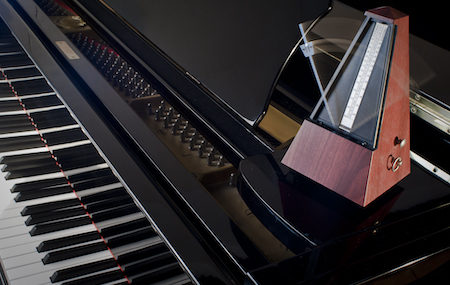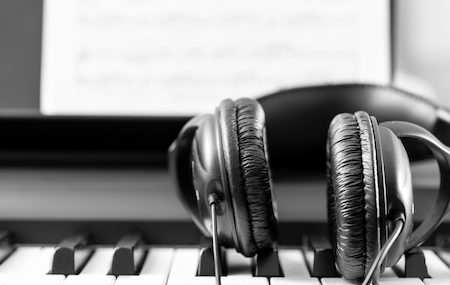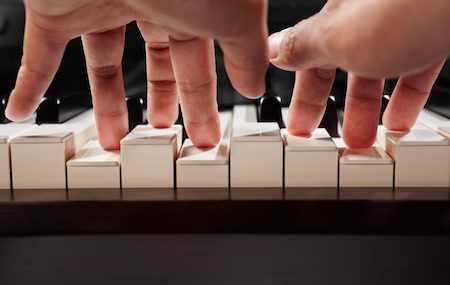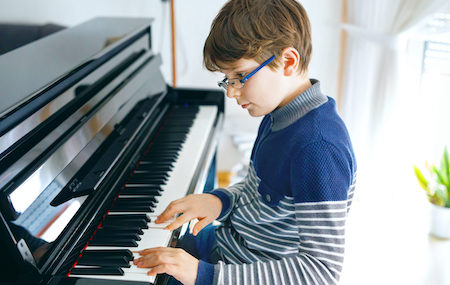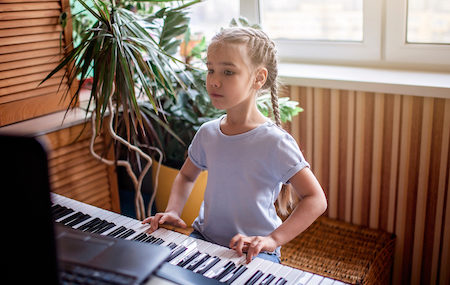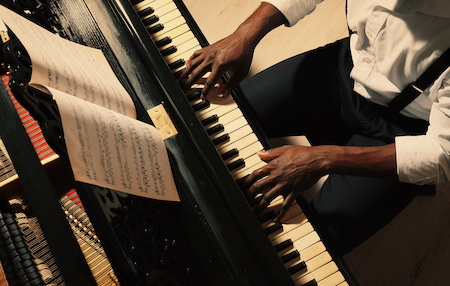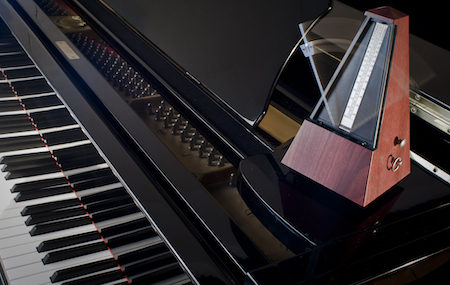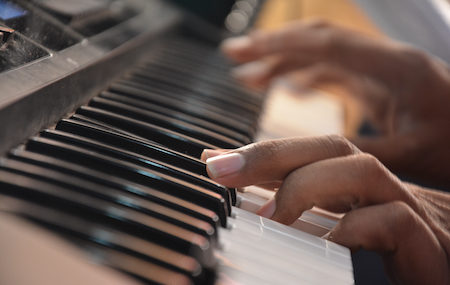If you want to study piano and gain an in-depth knowledge of the artistic side of playing, you must spend some time getting to know the greats in the industry. Of course, musicians have their own individual influencers, the people who motivated them to do what they do. But as a piano player, it would be hard not to consider these famous piano composers as significant influencers in the industry.
Wolfgang Amadeus Mozart (1756-1791)
Wolfgang Amadeus Mozart is perhaps the most well-known and beloved of all classical piano composers. Born in Salzburg, Austria, Mozart showed prodigious talent from a young age, composing his first pieces at the age of five. He was a prolific composer, producing more than 600 works in his short life, including symphonies, operas, chamber music, and piano concertos. His music is characterized by its beauty, grace, and clarity; it has influenced countless composers throughout the centuries. Some of his most famous piano works include Piano Concerto No. 21 in C Major, Piano Sonata No. 16 in C Major, and Fantasia in C Minor.
Ludwig van Beethoven (1770-1827)
Ludwig van Beethoven was a German composer and pianist considered one of the greatest composers in the history of classical music. He was born in Bonn, Germany, and began studying music at a young age, eventually becoming a student of Joseph Haydn. Beethoven’s music is known for its emotional depth and power. He is credited with expanding the boundaries of classical music by incorporating elements of folk music and opera into his compositions. Some of his most famous piano works include the Moonlight Sonata, the Waldstein Sonata, and the Emperor Concerto.
Frederic Chopin (1810-1849)
Frederic Chopin was a Polish composer and pianist widely considered one of the greatest pianists of all time. He was born in Zelazowa Wola, Poland, and began studying music at a young age, eventually moving to Paris to further his studies. Chopin’s music is known for its lyricism and sensitivity, and he is credited with developing the genre of the solo piano ballade. Some of his most famous piano works include the Prelude in E Minor, the Waltz in C-Sharp Minor, and the Etude in E Major.
Franz Liszt (1811-1886)
Franz Liszt was a Hungarian composer and pianist who was one of the most renowned virtuosos of his time. He was born in Raiding, Hungary, and began studying music at a young age, eventually touring Europe as a pianist and composer. Liszt’s music is known for its technical complexity and emotional intensity, He is credited with developing the concept of the “symphonic poem,” a form of orchestral music that tells a story through music. Some of his most famous piano works include the Hungarian Rhapsodies, the Mephisto Waltz, and the Dante Sonata.
Pyotr Ilyich Tchaikovsky (1840-1893)
Pyotr Ilyich Tchaikovsky was a Russian composer and pianist best known for his symphonies, operas, and ballets. He was born in Votkinsk, Russia, and began studying music at a young age, eventually becoming a professor at the Moscow Conservatory. Tchaikovsky’s music is known for its sweeping melodies and grandiose orchestration, and he is credited with bringing Russian folk music to the forefront of classical music. Some of his most famous piano works include the Piano Concerto No. 1 in B-Flat Minor, the Waltz from the Sleeping Beauty ballet, and the Nutcracker Suite.

